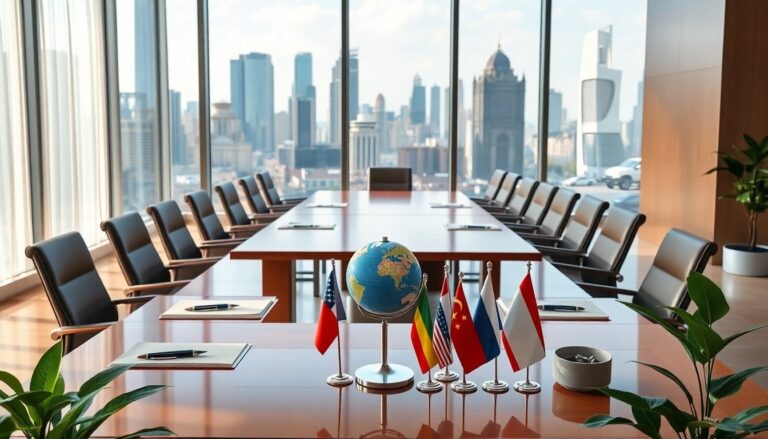Argomenti trattati
In a world where every interaction can shape the course of events, the role of the diplomat has become increasingly critical. The art of diplomacy transcends mere discussions; it involves weaving narratives that connect diverse cultures, fostering alliances, and addressing the pressing issues of our time. Just as the palate does not lie, so too does diplomacy require a careful balancing of flavors—each ingredient plays its part, contributing to a greater understanding among nations.
The Essence of Modern Diplomacy
Modern diplomacy is not solely about representing national interests; it is about creating a dialogue that resonates with the global community. In the 21st century, where technology and social media enable instant communication, the role of the diplomat has evolved dramatically. This delicate balance of tradition and innovation mirrors a chef who respects age-old recipes while embracing new culinary trends.
Consider the secretary of state, a pivotal figure in this dynamic. This individual embarks on journeys that span continents, engaging with leaders and citizens alike. Each trip is a chapter in a larger narrative, where alliances are forged and mutual understanding cultivated. Just as flavors must harmonize in cooking, diplomacy seeks to blend ideals and aspirations, fostering relationships that can withstand the test of time.
Building Bridges Through Dialogue
Behind every diplomatic mission lies a profound commitment to dialogue. The diplomat’s task resembles that of a chef crafting a multi-course meal, where each course is thoughtfully prepared to ensure that flavors complement one another while celebrating individual characteristics. Whether traveling to Florida, Mexico, or Ecuador, the secretary’s role involves listening as much as speaking, understanding cultural nuances, and addressing concerns that may vary greatly from one region to another.
In the kitchen, we often discuss the importance of layering flavors—a pinch of salt here, a dash of acidity there. Similarly, diplomacy requires careful consideration of the elements at play. Engagements can range from formal negotiations to heartfelt discussions at cultural events, all aiming to build trust and mutual respect. It is in these moments that the true essence of diplomacy is revealed, as personal connections are made and understanding deepens.
The Future of Global Cooperation
As we navigate the complexities of global challenges—be it climate change, economic disparity, or public health—it is crucial to recognize the importance of collaboration. Just as a chef must source ingredients responsibly, understanding the impact of their choices on the environment and community, diplomats must also be mindful of the implications of their actions. Sustainable practices in diplomacy can lead to more resilient and equitable global systems.
Ultimately, the future of diplomacy lies in its ability to adapt while staying true to its core values. As chefs innovate and experiment, so too must diplomats embrace new methodologies that resonate with contemporary audiences. The goal is to create a world where dialogue prevails over discord, where cooperation is the norm rather than the exception.
As we savor the rich flavors of international relations, let us remember that behind every diplomatic effort lies a story—one of hope, connection, and the shared pursuit of a better future.

